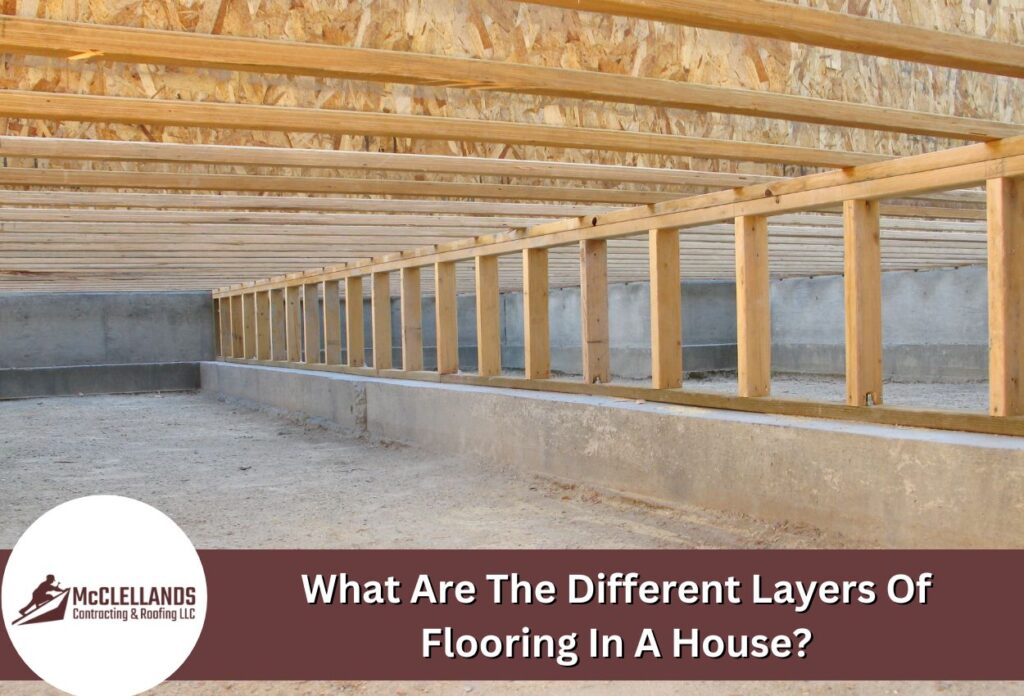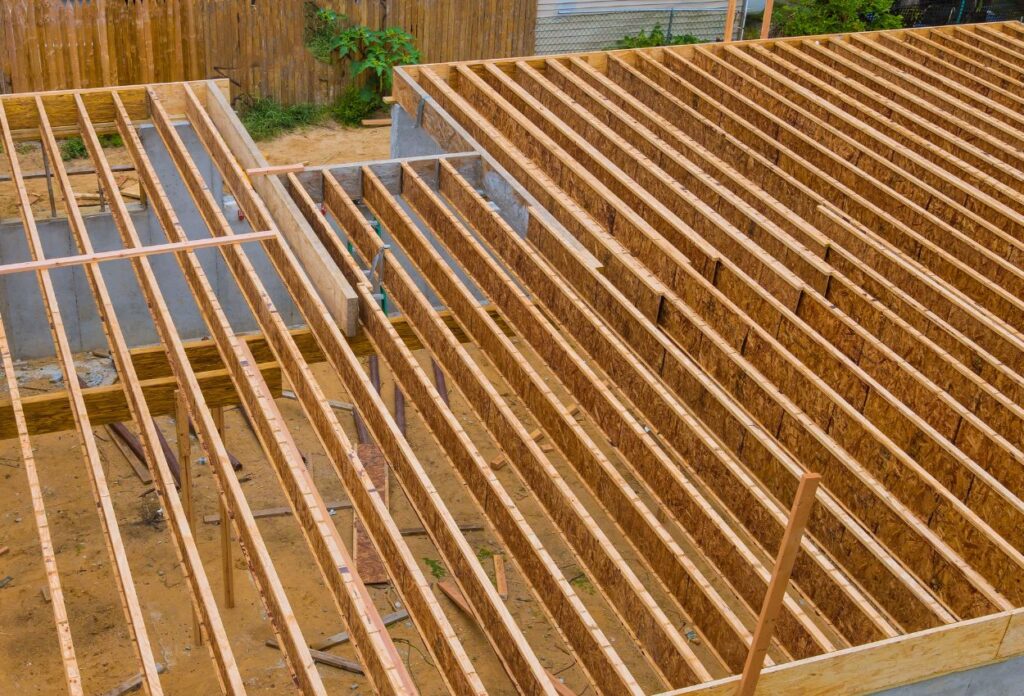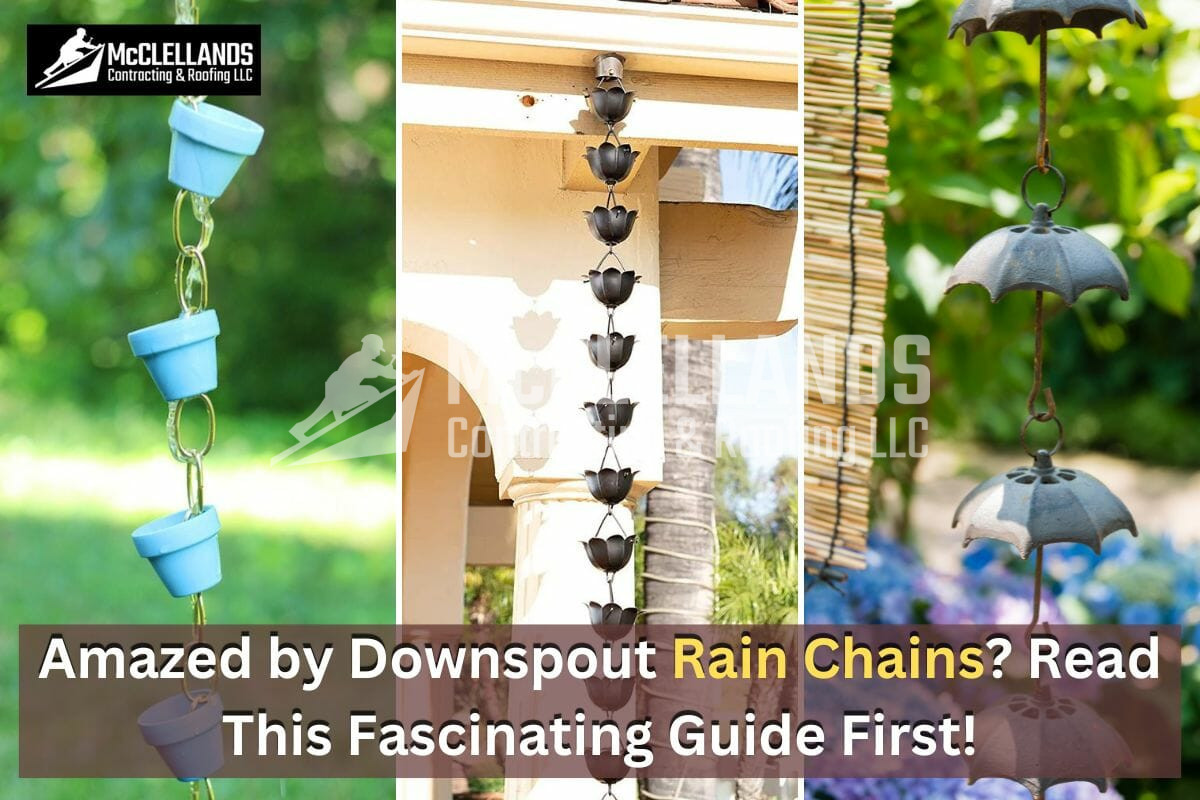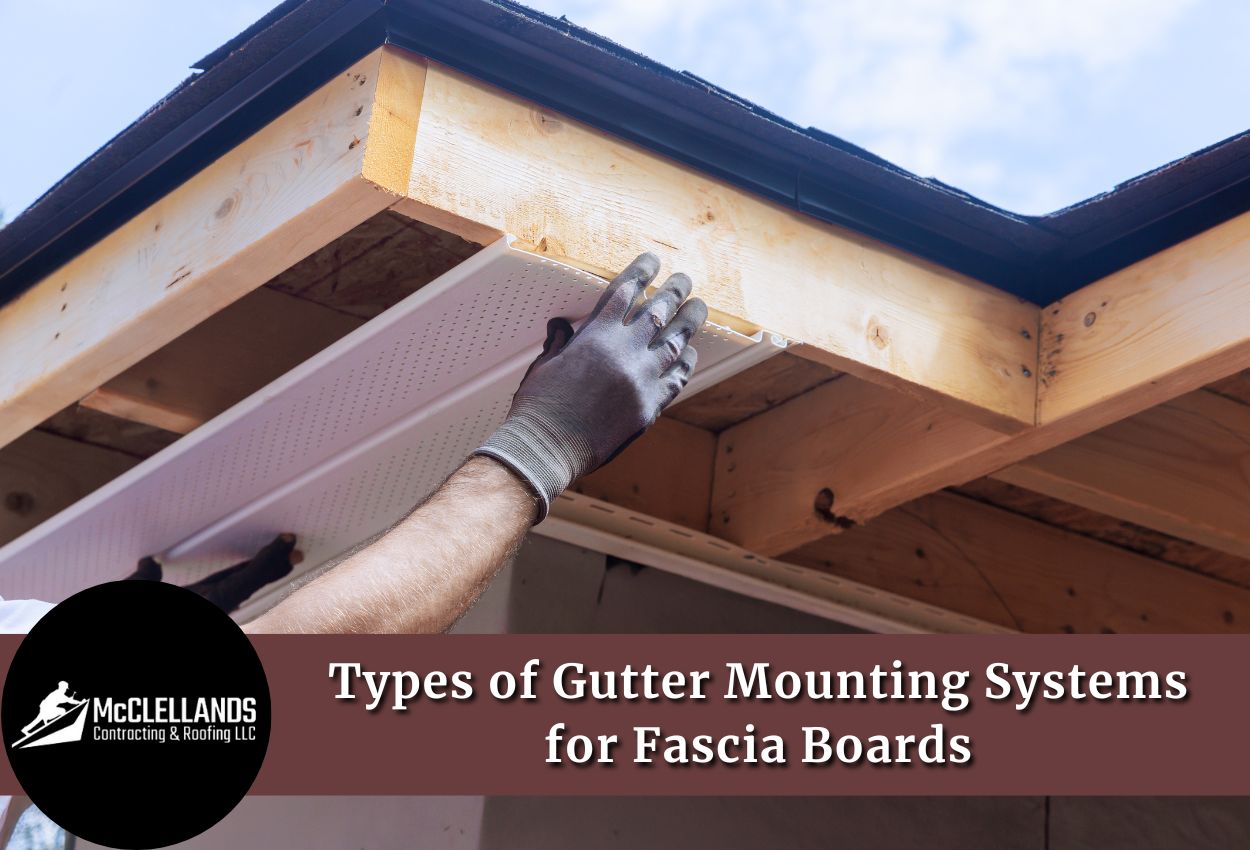
The flooring in your home plays a really important role in its overall comfort, appearance, and durability. However, what you see on the surface is just one part of a complex flooring system. Beneath your chosen floor covering, multiple layers provide structure, support, and protection.
At McClellands Contracting and Roofing, LLC, we specialize in professional flooring services in Pittsburgh and the surrounding areas of Pennsylvania. In this article, we will discuss all the important layers of a flooring system and help you understand their importance.
#1 Floor Joists

The floor joists are the horizontal structural members that support everything above them. Floor joists can be found in various types of materials, including dimensional lumber, engineered wood, and laminated wood products.
Professionals generally space joists 16 to 24 inches apart, and they play a very important role in distributing weight evenly across your floor.
The specific joist spacing and thickness depend on the type of flooring you’ll install. For instance, if you want hardwood floors, that requires different specifications compared to carpet.
Engineered wood joists can range from $5 to $20 per linear foot, depending on the material and complexity of the installation.
#2 Subfloor
The subfloor serves as the primary structural support for your finished flooring, with materials being used such as plywood, Oriented Strand Board (OSB), and concrete for basements and high-rise buildings.
Plywood stands out as the most resilient option for first or second-floor homes, offering superior moisture resistance and better nail-holding strength compared to OSB. This layer creates a continuous surface over the floor joists, providing a stable base for your final floor covering.
A standard plywood subfloor is approximately ¾ inch thick and provides really nice durability. Homeowners can expect to invest between $1.50 to $3 per square foot for quality subfloor materials.
#3 Underlayment
Underlayment is a very important (yet often overlooked) layer of your flooring system, which serves multiple important purposes. This thin layer provides a smooth, level surface while reducing noise, providing additional insulation, and protecting against moisture.
An interesting nuance in flooring is that laminate is the only floor covering that consistently requires a separate underlayment, while most other floor coverings have padding integrated into their design.
The cost for underlayment materials typically ranges from $0.50 to $2 per square foot.
#4 Floor Covering
This is the layer you see and walk on daily, representing the final, most visible component of your flooring system.
Homeowners can choose from a variety of popular floor covering options, including hardwood, laminate, tile, stone, carpet, and vinyl.
Each material provides different benefits in terms of durability, appearance, and maintenance requirements.
What Are The Different Types Of Flooring Materials, And How Do You Choose The Right One?
Choosing the perfect flooring requires careful consideration of multiple things that impact your home’s overall function and appearance.
👉 You should always think about your budget, room usage, personal preferences, maintenance capabilities, and specific durability needs.
👉 Hardwood flooring provides a natural appearance with dense, strong construction that can be refinished multiple times.
👉 Laminate presents an affordable alternative with easy installation and a wide variety of design options.
👉 Tile flooring is popular for its durability, easy cleaning, and water-resistant properties.
👉 Carpet brings softness and comfort to spaces along with extra insulation and noise reduction.
👉 Vinyl flooring provides a cost-effective solution with water-resistant and low-maintenance characteristics.
How To Maintain The Lifespan Of Your New Floors
Understanding the layers of your floor is just the first step in ensuring long-lasting, beautiful flooring. Regular maintenance is very important for protecting each layer and extending the life of your entire flooring system.
Different flooring materials require different care strategies that go beyond simple cleaning.
👉 For hardwood floors, humidity control is very important. Extreme temperature and moisture changes can cause the wood to expand and contract, damaging the underlayment and subfloor.
👉 Homeowners should maintain indoor humidity levels between 35% and 55% to prevent warping and structural issues.
👉 Using felt pads under furniture, cleaning with manufacturer-recommended products, and avoiding excessive water are key to preserving hardwood floors.
👉 Tile and stone floors need periodic grout and sealant maintenance. These protective measures are very important to prevent moisture from penetrating the underlayment.
👉 For carpeted floors, regular deep cleaning and immediate stain treatment help protect the underlayment and prevent moisture-related damage.
3 Additional Considerations for Your Flooring System
#1 Moisture Barriers and Soundproofing
For high-moisture areas like basements and kitchens, consider using a vapor barrier to prevent water damage. Soundproofing underlayment, such as cork or rubber, is also beneficial for multi-story homes or apartments.
#2 Leveling and Structural Reinforcement
If your subfloor is uneven, self-leveling compounds or floor reinforcement techniques may be necessary before installation.
#3 Eco-Friendly and Sustainable Flooring Options
If you are an environmentally conscious homeowner, here are options that you can consider:
👉 Bamboo flooring: Renewable and durable
👉 Cork flooring: Soft, sustainable, and soundproof
👉 Recycled vinyl: Eco-friendly and cost-effective
Get Professional Floor Remodeling Services in Pennsylvania
At McClellands Contracting and Roofing, LLC, we are your trusted contractors serving Pittsburgh and the surrounding areas of Pennsylvania. Whether you want a floor replacement or a new floor installation, we are here to assist you.
Our comprehensive flooring services cover every aspect of floor installation and renovation. We specialize in handling all types of flooring materials, from classic hardwood to modern vinyl.
Our process begins with a detailed consultation to understand your specific requirements, budget, and aesthetic preferences. We then conduct a thorough assessment of your existing subfloor, recommending the most appropriate materials and installation techniques.
We also use only high-quality materials from trusted manufacturers, ensuring durability and long-lasting performance. Our team is trained in the latest installation techniques, guaranteeing a flawless finish that enhances your home’s value and appearance.
For a free, no-obligation discussion about your flooring needs in Pennsylvania, just give us a call today at (412) 353-5660.




